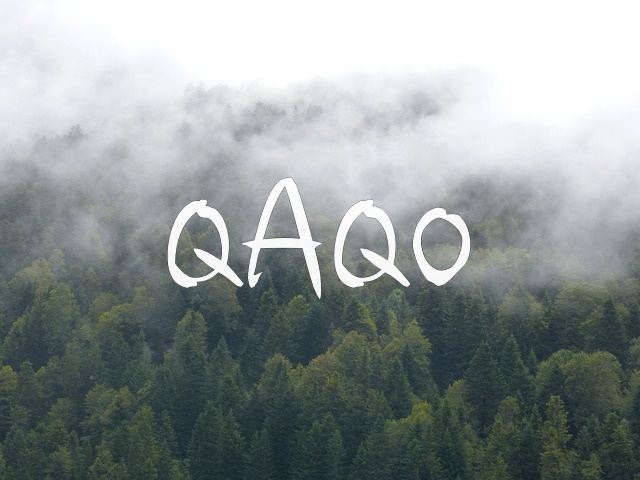
Similar to how “qiqil” was crafted: change g to q and you now have a totally different language that is hollow, lacking of emotions, but totally relatable to the general masses. Your curiosity is as good as mine.
Example: “Ang qaqo lang ng nagsulat nito eh, qiqil muku!”


Referencing how street children ask for spare change from passersby. Sounds funny when we say it, but when you think about how hard those kids have it, we hope you feel even a little bad about laughing at those memes created to ridicule those who use this word.
Example: “Kyah kyah pembarya kyah!”

Tbh, we actually like this one. We have our LGBT bros and sisses to thank for this playful word that has become a normal part of our everyday conversations. Charaught is somewhat synonymous to saying “just kidding”, that is why you often hear it as an ending to a statement with an intention to joke. You can also use charaught as an empty, fallback word when you want to make a bold statement but you’re not sure how the person would react. Like when you want to say “TYPE NA TYPE TALAGA KITA ALAM MO YUN” but you can only muster “CRUSH KITA CHARAUGHT” so you don’t get hurt when he responds with “LOL”. #CapslockIntensified
Lazy contracted form: CHAR.
Example: “Gosh ha mas maganda ako sa ex niya. Charaught!”
Is it hard to say the two-syllable, four-letter word “tara”? No. Does inverting its syllables make it sound like you’re talking about a large rodent? Yes. Look, we get it; some words sound a lot catchier when inverted. “Arat” just ain’t one of those words.
Example: “Mga orb may gig daw yung lodi natin kasbu. Arat!”
Just like “arat”, we don’t know why this one exists. We honestly have not gotten over the use of “anda” or “andalusha” to mean the thing you lose when there’s a three-day mall sale.
Example: “Shucks tagal pa ng sweldo! Arep, wru na?”
You are an atabs if you are someone’s *b word*. As someone’s *b word*, you are expected to always give credit back to the person who call you “atabs ko”. Pretty gangster-y, if you ask us.
Example: “Inom lang kayo dyan, nagpabili na ako sa atabs ko ng isa pang case ng beer.”
This one might be older than the rest of the words here but we think it still should be on the list. It’s a nice word to have when you can’t really explain what’s going on or when you want to rant about something or someone without going into specifics.
Example: “Ayoko siyang kasama kasi ang dami niya laging hanash sa buhay eh.”
“Oy anong hanash mo ngayon? Big time ka na, ah!”
Hm sis/hm bro is normally used in selling groups on Facebook to inquire about a price, usually followed by free shipping ba? and pm sent (private message sent). It’s become so ubiquitous that it’s normal to comment-bomb a comment thread with “hm sis” just to throw people off the conversation. Still, it feels good to type hm sis/hm bro on an item for sale on Facebook when you’re so damn sure you will be able to afford it.
Example:
*Friend 1 sells DSLR camera on Facebook*
*Friend 2: hm sis?
This is yet another term for you to address your orb/repa. We don’t know why you need so many variations. Is this a guy thing?
Example:
“Paps pautang naman 200, balik ko sa iyo bukas.”
“Paps painom ka naman, big time ka na talaga!”
Leave it to Pinoys to come up with weird nicknames for mundane things. A joy reserver is someone who frequently requests for online items for sale to be reserved for him/her, but never ends up buying it. Being labeled a joy reserver may get you banned from Facebook buy and sell groups, which begs the question: where is the joy in reserving items you know you can’t afford to buy?
Example:
*Seller A: Selling my iPad for 5k, in good working condition!”
*Member B: “Sold!”
*Seller A: “Sold to Member B! Pm sent for details”
After three weeks of no contact with Member B
*Seller A: “Mumshies and beshies, mag-ingat po tayo kay Member B. Isa po siyang JOY RESERVER (posts screenshots of Member B’s profile and private messages)
Pronounced as “sin-cha”, you can use this word when you want to make chismis about someone you just met on the down-low.
Example:
“Cynthia si girl na lakas-lakasan ang aura?”
“Cynthia ba yan si girl na laging tanga-tangahan ang peg?”
“Peg” has been around for a while now but we felt like it should still be included here. It is used either to express a person’s “aesthetic” or to lowkey shade someone because of how they’re acting.
Example:
“Ang ganda ng top na ‘to, sobrang peg!”
“Nakakainis yung pa-expert ang peg pero mansplainer lang naman talaga.”
More: A definitive guide to Pinoy slang 2K17 – Part 1
/VT

